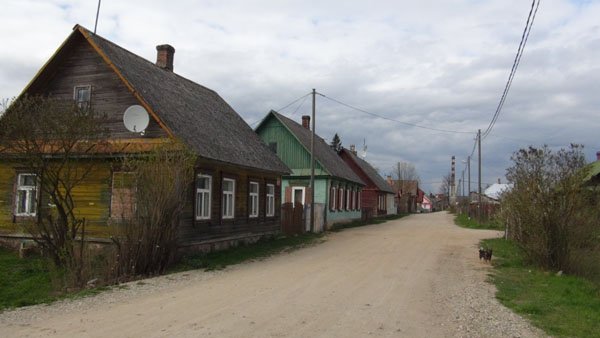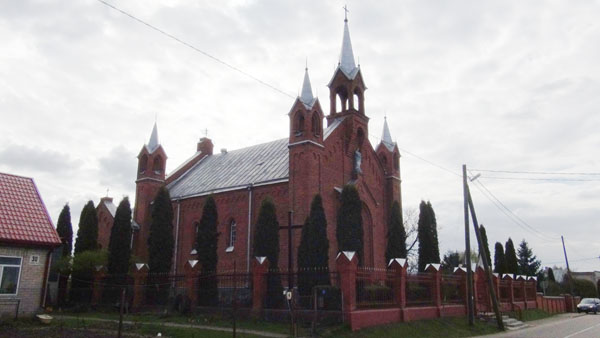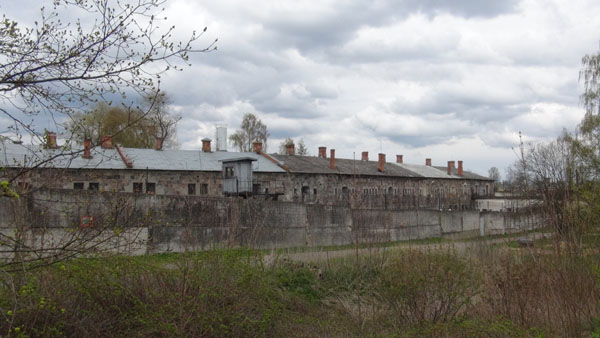On the southern bank of Daugava the Grīva suburb was once a separate city.
Grīva is mostly built up with private family homes. While those surrounding main streets are generally new, make a few turns and you may appear at what seems to be a 19th century suburb with old wooden homes and unpaved streets.

Built as a separate town, Grīva also has petite houses of worship of all the Latgale’s main denominations. Red brick Catholic Church of Blessed Virgin Mary (~1885) is the prettiest. Orthodox church is quite elaborate and interesting for the old wooden homes and atmosphere of 19th century that surrounds it. There are also two Old Believer churches as that community was traditionally especially numerous in Grīva.

Grīva Fortress is a massive 19th century military installation on the oposite bank of Daugava from the Daugavpils fortress. Both fortreses were meant to function together. Unfortunately unlike its “brother fortress” the Grīva Fortress may not be visited as it houses a prison now. But this makes it seem just more mysterious and dark. A memorial stone in front of it commemorates that a Jewish ghetto was established there under Nazi German occupation.

Given that Grīva sights are relatively spread, 10-20 minutes is enough to visit each of them and much of the rest is not that interesting, it is probably best option to visit Grīva only if one has a car.
Loading map...


What was the Latvian name of Griva?
Was Griva a part of Semigalia?
Was Griva in Latgalia or in Courland before united into Latvia?
Thank you.
The boundary between Courland-Semigallia and Latgale ran at Daugava river, so Griva was a part of Courland-Semigallia. Ethnographically speaking though, it is part of Sellonia. Grīva is a Latvian name, it means “mouth of a river”.
Thank you so much for the information and the permission.
May I have permission to include your photos in a book I am writing about my grand uncle, who was born in Griva in 1888?
Yes, you may use them just please show the source as “Augustinas Žemaitis, https://www.onlatvia.com“
Another question regarding the photo captioned “old wooden homes in Griva.” Do you happen to know if those homes used to belong to Jews or Christians?